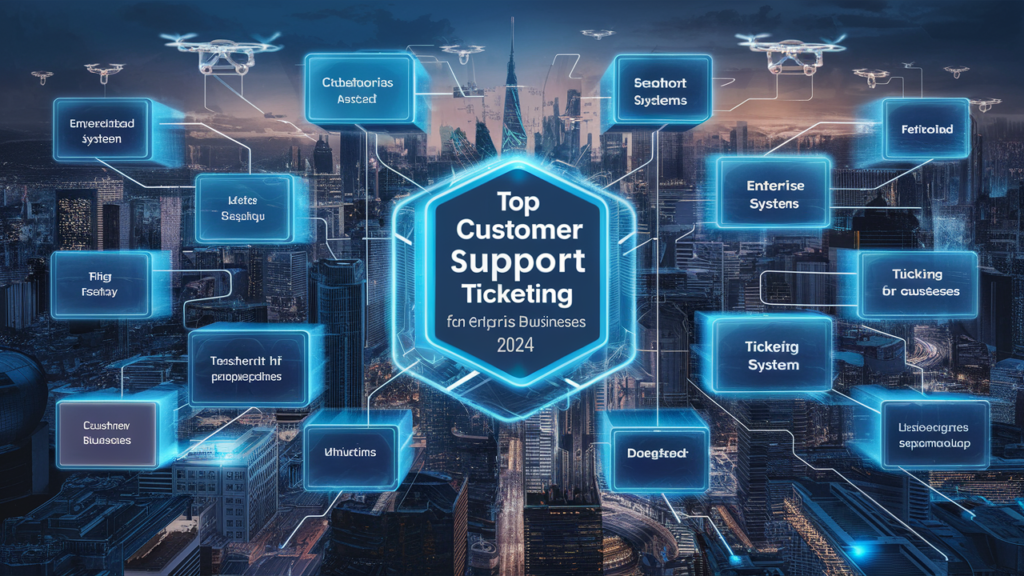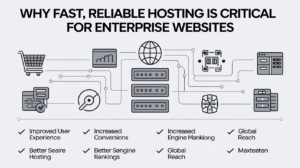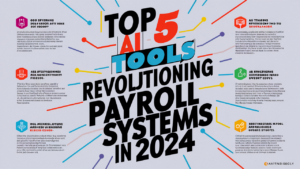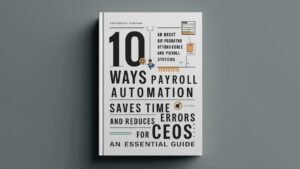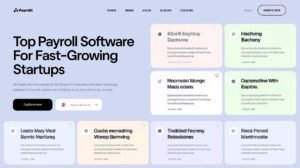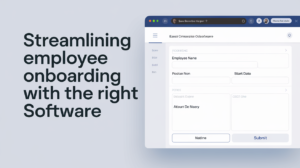Introduction: The Future of Customer Support for Enterprise Businesses 🏢
In an era where customer satisfaction is paramount, enterprise-scale businesses cannot afford to skimp on their customer support systems. Choosing the right customer support ticketing systems for enterprise businesses is crucial for managing large volumes of inquiries efficiently while ensuring a seamless experience for clients.
In this comprehensive guide, we’ll explore the best ticketing solutions designed for large organizations, highlighting their key features and benefits to help you make an informed decision.
Why Enterprise Businesses Need Robust Ticketing Systems 💼
1. Scalability 📈
Enterprise businesses deal with thousands of customer interactions daily. A scalable customer support ticketing systems adapts to the growing needs of the business, ensuring that no query goes unanswered, and the system handles increased traffic effortlessly.
2. Integration Capabilities 🔗
Large organizations often use various software across different departments. A robust ticketing system integrates seamlessly with existing tools like CRM systems, marketing automation platforms, and more, providing a cohesive support framework.
3. Advanced Reporting 📊
Detailed analytics and reporting functionality allow businesses to identify trends, measure performance, and optimize support processes based on data-driven insights.
4. SLA Management ⏱️
For enterprise-scale businesses, maintaining SLA (Service Level Agreement) compliance is non-negotiable. High-quality ticketing systems ensure that support teams meet their commitments efficiently, with timely resolutions.
Top Customer Support Ticketing Systems for Enterprise Businesses in 2024🌟
1. Zendesk 🛠️
Overview:
Zendesk is one of the most popular support ticketing systems, known for its intuitive interface and powerful features.
Key Features:
- Scalability: Designed to handle vast amounts of customer data.
- Integration: Connects seamlessly with over 1,000 apps and services.
- Analytics: Advanced reporting tools to monitor performance.
- Customization: Highly customizable workflows and automation rules.
Why It Stands Out:
Zendesk’s flexibility and robust feature set make it ideal for large enterprises seeking comprehensive support solutions.
2. Jira Service Management 📋
Overview:
Jira Service Management by Atlassian is tailored for handling complex service requests and IT service management.
Key Features:
- Integration: Deep integration with other Atlassian products like Confluence and Jira Software.
- Customization: Customizable workflows for different types of service requests.
- Real-time Collaboration: Facilitates efficient team collaboration.
- SLA Tracking: Ensures timely resolution with SLA matrices.
Why It Stands Out:
Its powerful IT service management capabilities make it perfect for tech-driven enterprises needing robust, customizable solutions.
3. Freshdesk 🌍
Overview:
Freshdesk offers a user-friendly yet powerful platform tailored for enterprise needs.
Key Features:
- Automation: Automates repetitive tasks to improve efficiency.
- Omnichannel Support: Manages customer interactions across multiple channels.
- Analytics: In-depth analytics and reporting.
- Customization: Tailored ticket views and automations.
Why It Stands Out:
Freshdesk excels in providing an all-encompassing support solution, particularly beneficial for enterprises with diverse support channels.
4. ServiceNow ⚙️
Overview:
ServiceNow is a top-tier IT Service Management (ITSM) tool that supports complex workflows and IT operations.
Key Features:
- Task Automation: Automates routine IT tasks to enhance productivity.
- Integration: Built to work seamlessly with existing IT infrastructure.
- Incident Management: Efficient incident and problem management.
- Customization: Highly adaptable to specific enterprise needs.
Why It Stands Out:
ServiceNow’s strengths lie in its ITIL-compliant processes and powerful automation, making it ideal for large IT operations.
5. Salesforce Service Cloud 🌐
Overview:
Salesforce Service Cloud integrates with Salesforce’s CRM to provide a cohesive customer service experience.
Key Features:
- CRM Integration: Leveraging Salesforce’s powerful CRM capabilities.
- Omnichannel Support: Provides unified support across multiple channels.
- AI-Powered Insights: Advanced analytics powered by AI.
- SLA Management: Comprehensive SLA management tools.
Why It Stands Out:
Tightly integrated with Salesforce CRM, it’s an excellent choice for businesses already using Salesforce products.
Factors to Consider When Choosing a Ticketing System 📑
1. Integration Capabilities
Consider how well the ticketing system integrates with your existing tools. Seamless integration ensures that your support team can work efficiently without switching between multiple platforms.
2. Scalability
Ensure the system can grow with your business without performance hiccups. A scalable solution should easily handle increasing customer requests as your organization expands.
3. Customization
Look for systems that allow for customizable workflows to fit your business processes. Customization ensures that the ticketing system adapts to your specific needs.
4. Reporting
Advanced analytics and reporting features are essential for continuous improvement. Look for a solution with comprehensive reporting capabilities that provide actionable insights.
5. User-Friendliness
A system that is easy to use will be quickly adopted by your team, reducing the learning curve and improving team efficiency.
Conclusion: Choosing the Right Ticketing System for Enterprise Businesses 🎯
Selecting the right customer support ticketing system is critical for maintaining high customer satisfaction and operational efficiency in large organizations. By considering factors such as scalability, integration, customization, and reporting capabilities, you can find the best solution to suit your large-scale support needs.
Whether it’s Zendesk, Jira Service Management, Freshdesk, ServiceNow, or Salesforce Service Cloud, each of these platforms offers unique strengths to handle the demands of a large enterprise.

